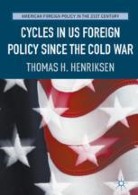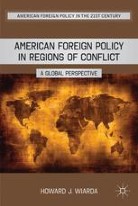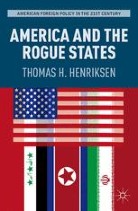
About this book series
This series seeks to provide serious books on the U.S. response to contemporary global challenges. The collapse of the Soviet Union in 1991 marked a new and altered stage in U.S. foreign relations. The United States now confronts a very broad spectrum of problems in the post-Cold War period. These include issues such as environmental degradation, climate change, humanitarian disasters, piracy, globalization, ethnic civil wars, sustainable economic development, non-state terrorism, and the role of international law in global affairs. Even more familiar troubles such as state-to-state relations have taken on new trappings with the threats from rogue nations and the return of great power rivalries with a rising China, a resurgent Russia, and a self-reliant European Union. Nuclear weapons, energy dependence, democracy promotion, regional problems in the Middle East or Africa, along with ascendant China and India are now viewed differently than in the previous era. Additionally, there are important and troubled bilateral relationships. Today, these state-to-state difficulties include Pakistan, Venezuela, and Mexico, to name just a few that scarcely appeared on State Department radar two decades ago. This series publishes monographs on topics across these foreign policy issues, and new ones as they emerge. The series editor is Thomas H. Henriksen, a Senior Fellow at the Hoover Institution, Stanford University, USA.
- Electronic ISSN
- 2945-686X
- Print ISSN
- 2945-6851
- Series Editor
-
- Thomas Henriksen
Book titles in this series
-

-
Cycles in US Foreign Policy since the Cold War
- Authors:
-
- Thomas H. Henriksen
- Copyright: 2017
Available Renditions
- Hard cover
- Soft cover
- eBook

-
American Foreign Policy in Regions of Conflict
A Global Perspective
- Authors:
-
- H. Wiarda
- Copyright: 2011
Available Renditions
- Hard cover
- Soft cover
- Soft cover
- eBook

-
America and the Rogue States
- Authors:
-
- T. Henriksen
- Copyright: 2012
Available Renditions
- Hard cover
- Soft cover
- eBook

Publish with us
Download book proposal form

